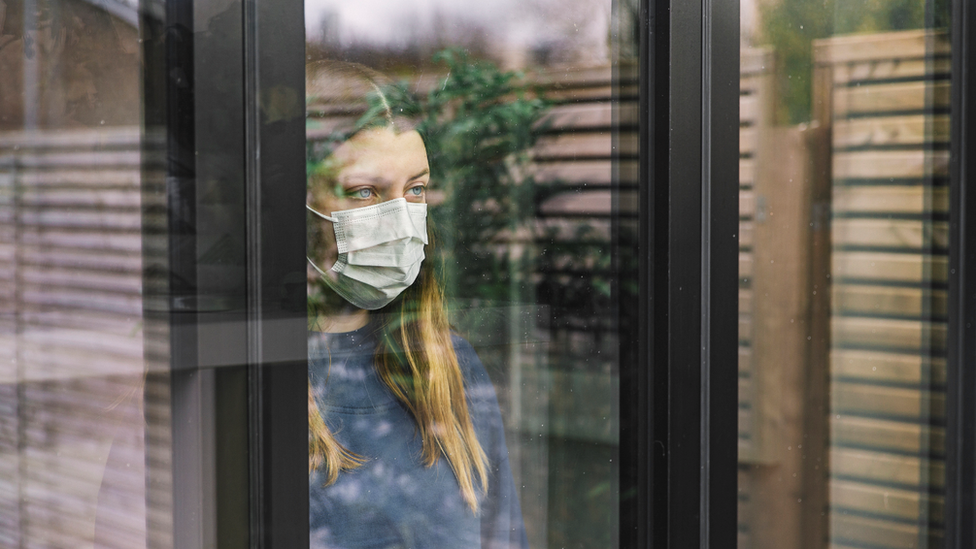Codo Drops: Art for art's sake and better mental health
- Published
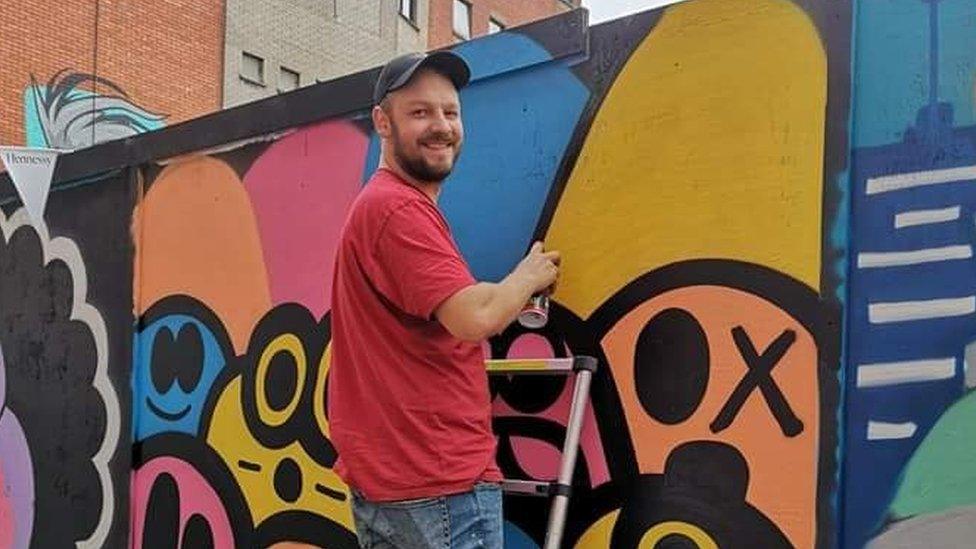
Chris McGuiggan is hoping to make a difference in his local community
Before the coronavirus lockdown hit in March 2020, Chris McGuiggan thought that life could not get much worse.
The 32-year-old, from Bangor, County Down, was drinking heavily while battling mental health issues.
During lockdown, his depression and drinking worsened and then his good friend, Dean, died suddenly.
Frustrated by the lack of help for people struggling like him, Chris turned to art as a way of coping and can now consider DJ Fatboy Slim as one of his fans.
The DJ got chatting to Chris through Instagram, during a street art festival in Belfast, and commissioned him to decorate a spray can for his personal collection.
"It's a great feeling when someone appreciates what you do and wants your art in their own home, never mind a world class DJ such as Fatboy Slim," he said.
Chris has also opened the Codo Drops walk-in centre in his hometown, which aims to improve people's mental health "through art and conversation".
"Anyone that comes into the centre, we let them know that it's an extension of their own home so anything in there is theirs to use whenever they need," he told BBC News NI.
"You don't need to be into art to come in as we have other stuff available, like games, crafting materials, a library and different consoles to use."
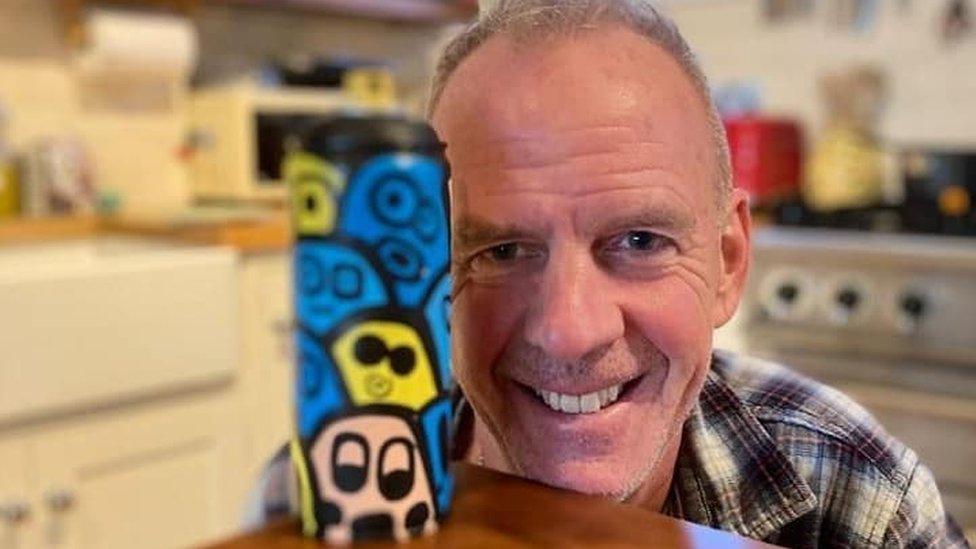
The artwork has caught the attention of DJ Fatboy Slim
Chris wishes Dean could be part of Codo Drops, but hopes his close confidant is proud.
"We were very open about our own struggles and the frustration about the help accessible to people," he said.
"There was a point he said: 'If its not me and you, it's nobody.' Basically he was talking about if we could openly speak about our issues and struggles, then people might not be as scared to speak about theirs."
'Inspiring'
Louise Little, manager of North Down Community Network, described Chris's Codo Drops team as an "inspiring group of dedicated volunteers".
"Their relaxed open-door policy and inclusive approach really make a difference, meaning that people from all walks of life and experiences can drop in and get some support," she told BBC News NI.
"They have referred many people on to professional mental health services and also provided a range of art sessions and other creative methods for people on-site.
"The need and demand for their services will only continue to grow as people emerge from the pandemic and face the many challenges of life presently."
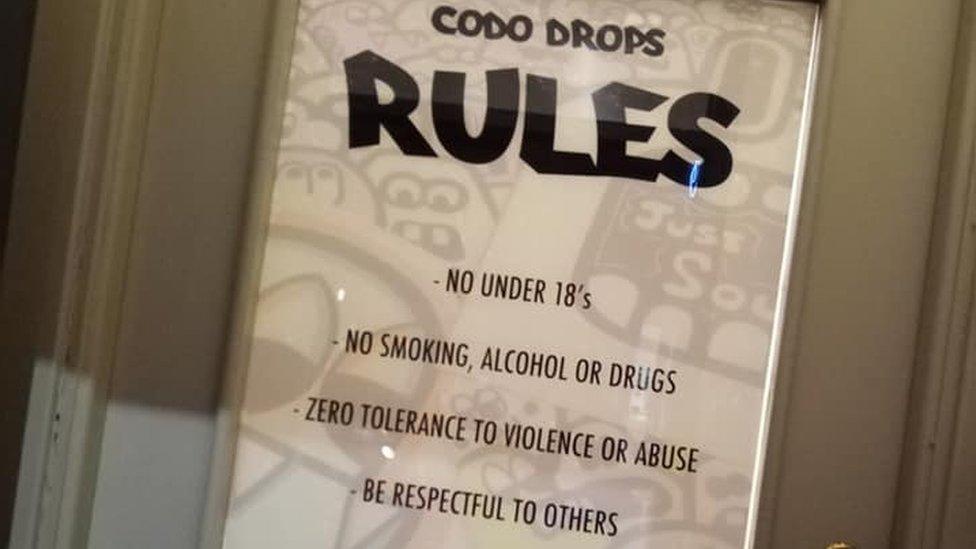
There is a no alcohol or drugs rule at the centre
While 2022 may feel like a world away from how life looked for Chris at the beginning of the pandemic, he remains very aware of the struggles many others are facing.
As the cost of living rises, waiting lists for services get longer and the impact of the Covid-19 pandemic is felt, financially, mentally and physically, Chris believes politicians must do better.
"It is absolutely true that a combination of factors has led to this being a time of national crisis in terms of mental health, across all cohorts of the population," he said.
"This has become increasingly apparent to us and other organisations who work in the community.
"Young families are struggling on reduced incomes, increased living costs and what seems like a death of opportunity and ways out. This translates to increased numbers in people needing help with basic living requirements, sky-rocketing levels of mental health problems, and tragically, more and more people taking their own lives, the stats tell a horrific story of life in our own community today."
'An emergency situation'
The most recent statistics for suicide in Northern Ireland, external showed there was a 33.5% increase in suicide deaths from 2019 (197) to 2020 (263).
"Politicians would need to treat this as the emergency situation it is," Chris said.
"In the past couple of years, we have seen how collective efforts can accomplish great, societal change; examples include money raised for the NHS or the army of volunteers who staff food banks to feed the millions on incomes not adequate to provide a decent, dignified standard of living.
"If these are the changes normal people can bring about, then those in elected positions surely hold the power to massively revolutionise how mental health problems are identified, treated and ultimately, reduced in our society.
"We need to look at the problems under this umbrella as an emergency and to deliver extra resources and funding for vital services, as well as a collective, cohesive response from all those in the community, at all levels, to tackle this problem that plagues more and more families every day."
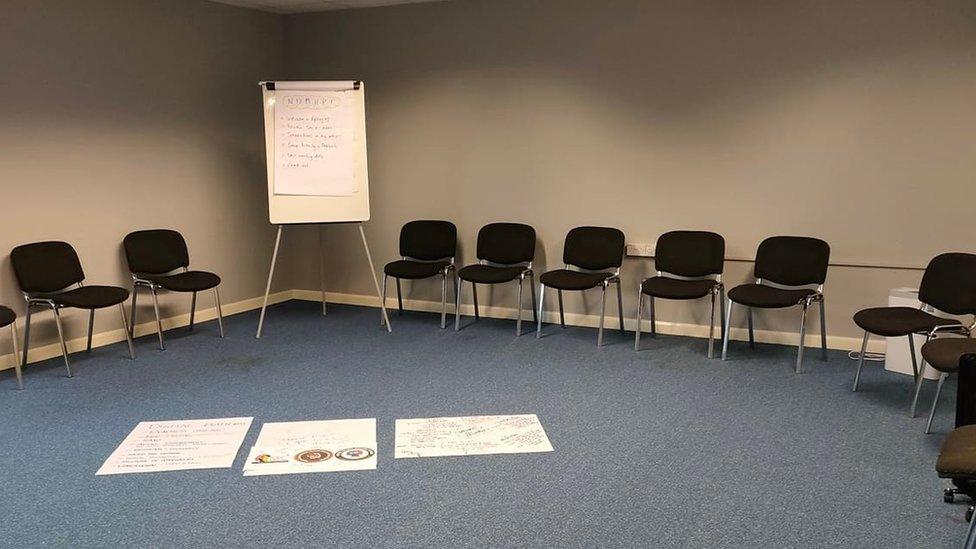
Codo Drops is a partner in the North Down Mental Health Forum, facilitated by North Down Community Network
In June 2021, the Department of Health launched its 10-year mental health strategy.
But it says it needs an extra £1.2bn to fully implement its recommendations.
The department told BBC News NI it had invested about £10m in suicide prevention in 2022.
Its Protect Life 2 initiative "ensures suicide prevention services and support are delivered appropriately in deprived areas where suicide and self-harm rates are highest".
"Minister Swann has consistently made mental health one of his top priorities," the department said.
It added that the mental health strategy "recently had an additional allocation of £6m approved, which has enabled awards to be made to a total of 107 projects offering support to people with mental ill health throughout Northern Ireland".
Related topics
- Published7 February 2022
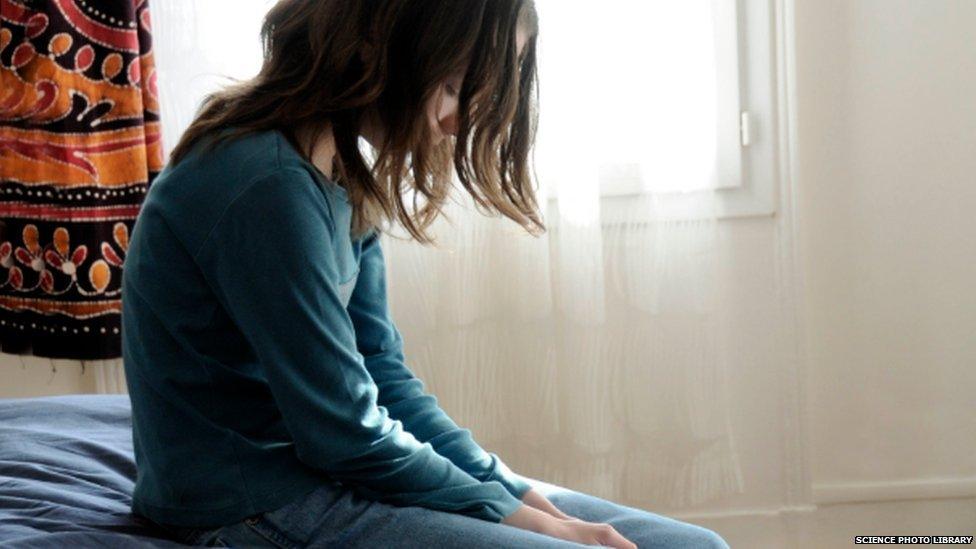
- Published29 June 2021
